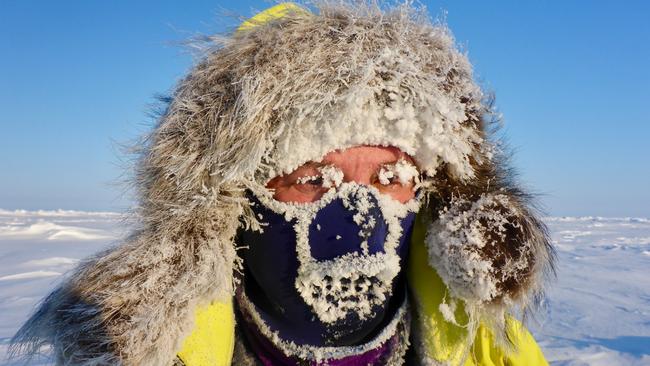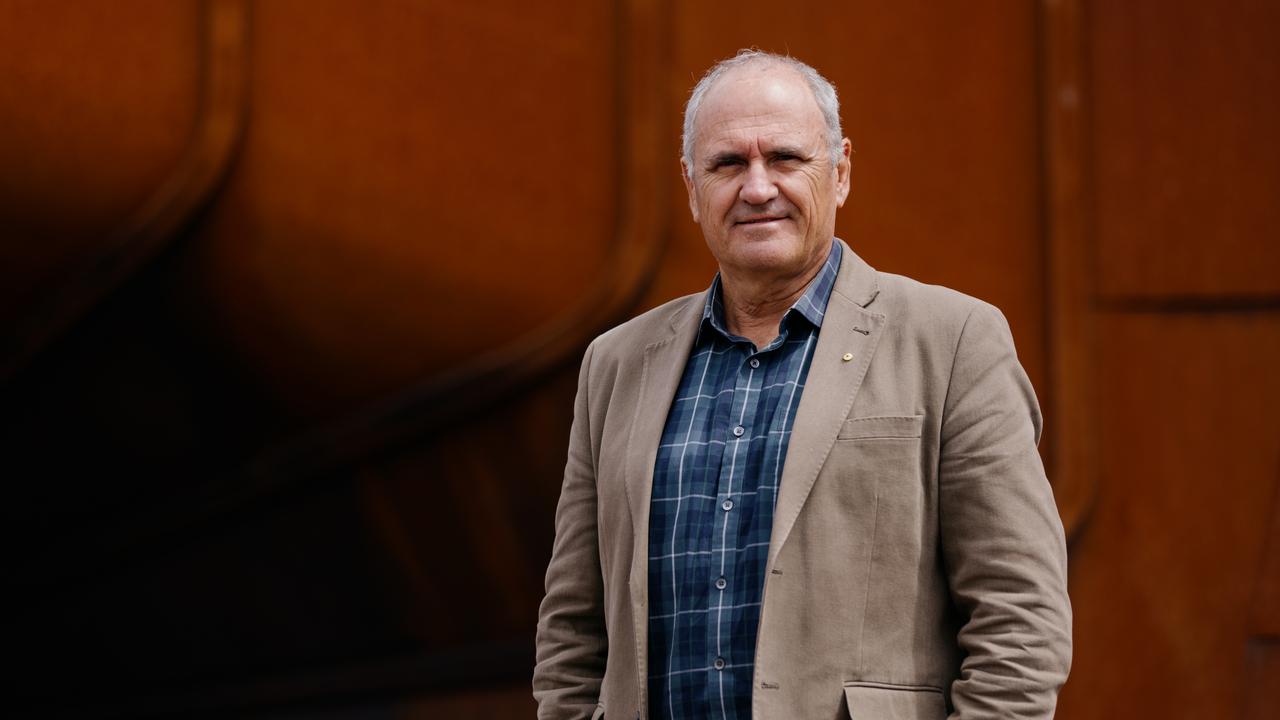Telstra chairman John Mullen answers call of the wild
Telstra chairman John Mullen is one of the more interesting characters on Australia’s top floor.

Scratch the surface and you’ll find that the chairman of Telstra is one of the more interesting characters from Australia’s top floor.
Just pull away from corporate matters for a moment. John Mullen’s long-held passion for naval history and treasure hunting — historical treasure, he corrects me — is no secret.
As a boy, he grew up in Portugal, whose sailors were once at the vanguard of New World exploration. Every year for a week or so this passion takes him to ocean floors, often the Coral Sea, prospecting through wrecks far more beautiful than anything Hollywood could produce. It nearly cost him his life six years ago, while diving 500km off the Queensland coast. What is believed to have been a jellyfish sting delivered a burst artery, two cardiac arrests and life support. You’d think you’d take it easy after that.
This year, however, Mullen set himself a different challenge — the North Pole — in May. That’s right, walking in with just one other chap, skins on the skis and all that, pushing a sled and his physical limits once more.
“We flew from Svalbard in a Russian Arctic-equipped aircraft to a Russian polar base established every year on the polar ice cap,” he says.
“Together with four other expeditions this served as the base camp for the final push to the pole.
“The temperatures were in the minus 40s and I don’t know how many kilometres we covered because the ice cap is moving all the time, sometimes with you and sometimes against you. But the four expeditions probably skied more like 120km each to get to the actual pole.
“We never saw any of the others again after leaving base camp because we all took slightly different routes trying to calculate the ice drift and difficulty of terrain.” What about the polar bears?
“Ah. Well, theoretically we’re too far north, because there’s no food that far north. But we did actually see some tracks and another expedition had an incident with a bear, so maybe it’s global warming making it go somewhere else.”
Was this climate change, and did he notice it first hand?
“Absolutely. We started in Svalbard, Spitsbergen, the most northerly human habitation in the world, and the climate change, whatever the cause, blind Freddie can see it, fjords that have traditionally been frozen all winter are now half open.”
Two takeaways here: Mullen downplays the polar bear story. It’s in keeping with the calm, open demeanour he presents in the corporate world. A good man under pressure, one might muse.
Second, he should be out there representing that corporate world publicly, because he clearly thinks beyond his stock options.
In March, he was one of 90 prominent Australians to sign a letter to Adani chairman Gautam Adani urging him to abandon the $21 billion coal project in the Galilee Basin.
A healthy world is something Mullen cares about deeply, and he’s one of the few who dives in the reef, which is under stress. He’s also a committed Europhile and is clearly troubled by the Brexit fallout.
Unlike some other business leaders, Mullen has not built much of a public profile. His most recent executive role was CEO at Asciano, a journey in itself in revamping the Patrick Ports through to an eventual sale.
I remember interviewing Mullen high up overlooking the Botany docks, as he explained the latest autonomous freight wizardry that moved hulks to millimetres of accuracy. It was a long, tough job dealing with the buyers, some of the oldest hands in the logistics business in the Corrigan crew from Qube, and a regulator in Rod Sims at the Australian Competition & Consumer Commission, who took a good deal of pleasing. And as with Patrick, industrial relations is a work in progress: witness the strike threats by Toll drivers this week.
It was Mullen’s turnaround skills and a long career in international logistics with TNT and DHL that attracted the partly privatised Japan Post to pull him over to chair its Toll Group, the high-growth Aussie logistics business that Paul Little built.
Within a year of the Toll acquisition, Japan Post found itself with a writedown of $4.9 billion, with 1700 jobs to go over 18 months. The union had criticised Toll for cannibalising its businesses as new acquisitions competed with existing operations. Under Mullen and his new CEO, Michael Byrne, 32 business units are now operating as 10.
As for working for the Japanese? “I love it, love Japan, love the culture and as shareholders you really couldn’t ask for better. They’re long-term shareholders: you don’t have this short-term thinking.”
The appeal, too, is a turnaround task, away from the onerous public listed spotlight.
“Two to three years’ hard work and hopefully from that we will have a base we can turn Toll into something it would never have aspired to be before.”
The contrast to his role as Telstra chairman could not be more dramatic: scrutiny of every move, by the market and the media. Mullen has been on the board for almost a decade. Take the growing speculation this week around a possible cut in the dividend, something Mullen said he could not comment on right now.
But his interview this week on Sky News Business was remarkable for the insight he gave into how Amazon is affecting so many traditional players.
“The potential competitors of the future, not our traditional Optus and Vodafones, but more likely the Amazons, don’t pay a dividend and they reinvest an ever-growing cash flow in cheaper and better products.
“And there’s going to be a growing divide between ... established companies and some of these newer companies, based not just around the fact that they’ve got some wonderful technological service enhancement but also because of their business model, and investor model.
“Take Koch industries, the largest private companies in the world. They reinvest 90 per cent of their profits … 90 per cent. And never expense more than 10 per cent. It all goes into growth. And the Chinese-type model, state-owned, then privatised industry. So it’s not just for Telstra, it’s for the whole industrialised West to work out how to do this.”
Just stating the facts, Mullen says: “If Telstra hadn’t paid a dividend for the 10 years we’d have a $50bn war chest to take on this new competitor.”
So given the need to balance growth and shareholder returns, should boards be pushing towards the management of expectations?
“Well I think so. It’s a conundrum though. If I stood up at the AGM and said ‘Telstra is not going to pay a dividend and lose money for 10 years to compete with a new-age business’, there would be a hearse outside waiting for my still warm body.”
And there’s the rub. It is a refreshing dose of reality from a chairman who has seen a lot of executive action, with a mandate to stay alive and competitive.
So was it a fixation on the brutal life of the explorer that got Mullen to the North Pole?
He says: “We all have very full-on days of work and intellectual challenges and time constraints. I just think it’s really good every now and again where you have to focus on staying alive, and achieving what you’re trying to achieve. You can’t worry about mortgages and share prices and all those things, you just have to focus on something completely different. I find that therapeutic.”
Ticky Fullerton presents Ticky at 6pm weeknights on Sky News Business.



To join the conversation, please log in. Don't have an account? Register
Join the conversation, you are commenting as Logout